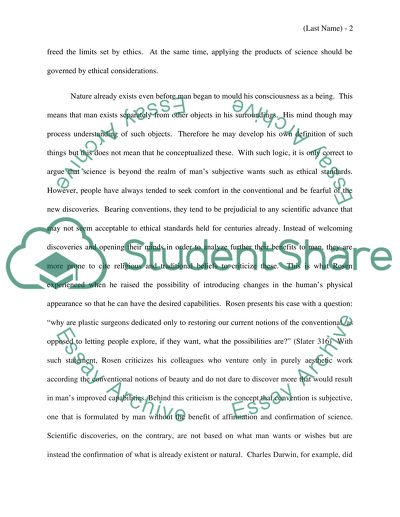Cite this document
(“Science and Ethics: Achieving Harmony Essay Example | Topics and Well Written Essays - 1250 words”, n.d.)
Retrieved from https://studentshare.org/environmental-studies/1415843-science-and-ethics-achieving-harmony
Retrieved from https://studentshare.org/environmental-studies/1415843-science-and-ethics-achieving-harmony
(Science and Ethics: Achieving Harmony Essay Example | Topics and Well Written Essays - 1250 Words)
https://studentshare.org/environmental-studies/1415843-science-and-ethics-achieving-harmony.
https://studentshare.org/environmental-studies/1415843-science-and-ethics-achieving-harmony.
“Science and Ethics: Achieving Harmony Essay Example | Topics and Well Written Essays - 1250 Words”, n.d. https://studentshare.org/environmental-studies/1415843-science-and-ethics-achieving-harmony.


